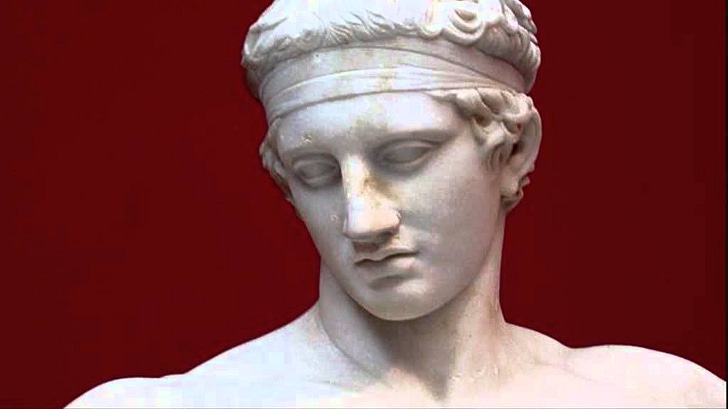The Greek Way is a 1930s introduction to Greek history and culture. Edith Hamilton wrote it as a way of bringing the Ancient Greek world to life for her contemporary (and otherwise) readers. The book focuses mainly on art (sculpture and painting) and culture (poetry and theatre), but it has some chapters dedicated to the major historians of Greece as well. One thing that jumped out to me in the first few chapters was Hamilton’s comparison of the Greek mindset to the Buddhist one. I’ve never seen that before and I’m honestly a bit confused by it.
The Greek Way starts out speaking in general terms about Greece, then moves into poetry, comedy, history, and tragedy. It obviously can’t cover everything in those categories in the space available, but you will get a very good overview of what was seen as important during this time period.
What I particularly liked was that both Herodotus and Thucydides were discussed as equally important. They both show two very different methods of recording history, but Hamilton points them out as equally valid. Thucydides is interested in a much drier style, giving the facts and the speeches that happened at the time. Herodotus has a much wider range, and he includes plenty of stories and hearsay in his histories. I’ve often heard Herodotus described as the ‘master of lies’, but I’m glad that Hamilton didn’t. She merely says that Herodotus can be seen as a bit more credulous than others.
I think chapter four is my favourite in the book. It looks at Greek Classical poetry and British Romantic poetry - the differences and similarities between the two.
The comparison between Pindar and Keats is particularly good, I think, because it shows how different poetry can be. Poetry takes so many forms, not just the ‘focuses on the visual’ of Pindar and the ‘focus on the emotions’ of Keats. It depends on many things, such as the style you are aiming for, the dominant poetry styles of the day, your own aims in poetry….
Neither style is better or worse, but Hamilton uses Pindar’s style as a metaphor for the wy the Greeks (at that point) saw the world around them.
What stood out to me in the discussion on tragedy was the way in which Hamilton described the experience of tragedy as universal. It reminded me of reading about a company which puts on Greek tragedies for and with certain groups, in order to help them talk about their experiences. Their rationale was that Greek tragedy was a way for Greek men in particular to experience catharsis - the depictions of warriors both in battle and afterwards would give them something to relate to, as veterans themselves. So the group uses, for example Euripide’s Trojan Women, to talk about people’s experiences as refugees and people displaced by war. It is a very interesting subject.
So….The Greek Way by Edith Hamilton. It is definitely a bit outdated in parts, but the whole book is worth a read. Hamilton clearly loved her subject - you can see it in every chapter. Go forth and read! I hope you enjoyed this, and leave comments below.
I’ve just been informed that she also wrote The Roman Way. That is definitely going on my birthday list :-D


